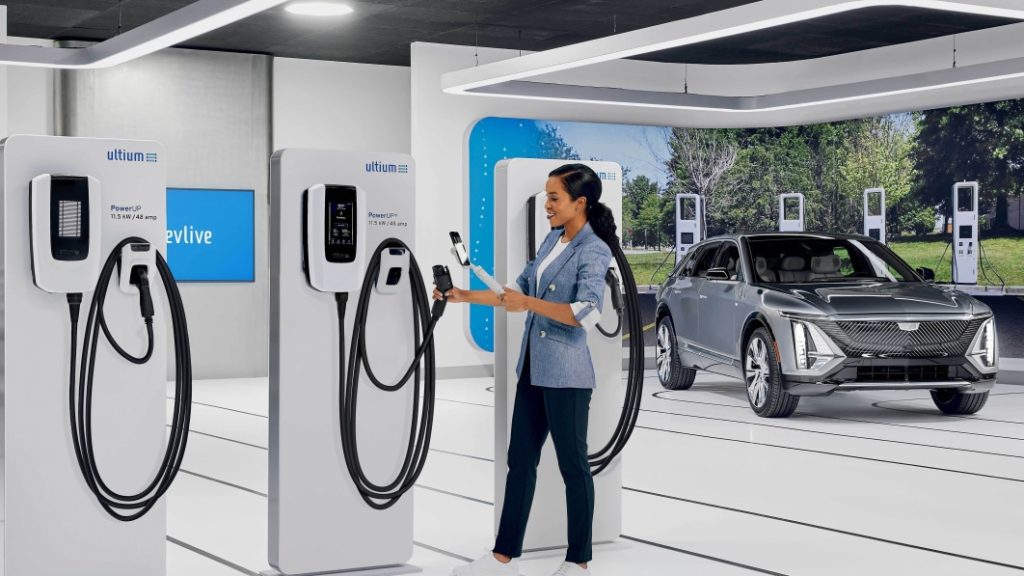GM supports EV shoppers, owners by transforming an old Target into a call center

GM is hoping to snatch up more electric-vehicle market share by helping new EV owners and prospective buyers understand the vehicles with a new call center.
GM
GM has opened a call center to answer consumer questions about battery-powered cars.
GM is eager to eliminate lacking EV education as a barrier to owning plug-in cars.
“EV Live” is a way to supplement dealers, not replace them, GM says.
As General Motors and its competitors roll out dozens of new electric-vehicle models, the mainstream buyers they need to win over are working through a plethora of anxieties and questions, ranging from whether an EV can go through a car wash to which battery tech is better for performance.
To win them over, GM is helping new EV owners and prospective buyers understand the quirks and nuances of the tech-heavy vehicles — by directing them to a call center.
In a bright white room in an old Target in suburban Detroit, GM has a team of trained electric-vehicle specialists taking video calls from all kinds of EV shoppers and owners seven days a week for up to 15 hours a day. They help anybody who calls, from drivers familiar with the EV experience to those just curious about going electric, from how to charge an EV at home or in public, to whether an EV fits into a driver’s lifestyle, to technical questions about an EV battery.
At “EV Live,” which opened in July, specialists move from display to display, where GM has mocked up charging stations and parked some of its EVs, including the Chevrolet Bolt, the GMC Hummer EV, and the BrightDrop delivery van.
GM’s specialists don’t just help GM buyers. The idea is to be there now to gain future loyalty, said Hoss Hassani, the automaker’s vice president of EV ecosystems. In fact, over the Thanksgiving holiday weekend, EV Live saw a surge in calls from non-GM owners, Hassani told Insider.
“In their moment of need, in their moments of anxiety, who gave them the answer to their question?” Hassani said. “Who resolved that anxiety? General Motors.”
Evolving purpose
In a J.D. Power study on EV consideration, about 30% of consumers who rejected EVs cited a lack of information. That leaves consumers on their own — or relying on dealers — for education.
“I think that the dealer plays a really important role in the community, in educating the customer, and representing the brand,” said Martin French, a managing director at the consultancy Berylls.
But swamped dealers are already racing to stay on top of product, navigate supply shortages and inventory constraints, make the huge investments to handle EVs, and also keep sales personnel up-to-date on the latest charging developments.
That’s why EV Live has added training for dealers since it opened.
Hassani said the idea was to support dealers, not replace them. One GM dealer is even planning to install a large screen in the showroom where sales representatives can beam in the EV Live center for help, he said.
GM says the center is not a sales-focused venture, though for now it doesn’t seem other automakers have this sort of thing cooking. With GM now predicting EV profitability by 2025, this may help get it there.
People calling in “are driving somebody else’s car today,” Hassani said. “But three or four years down the line — or even today, when they’re talking to their friends and family about buying an EV — we think we stand a pretty good chance of courting people.”



